Discover Which Iconic Movie Parent Matches Your Parenting Style

Have you done a little online research on parenting lately? If you did, you’ve probably landed on hundreds of articles describing what psychologists call “Parenting Styles”. But what are they? Skip to Understanding Parenting Styles or keep reading to discover how I figured out mine.
My eldest child was born at about 1am on a cold January night after 29 hours of labor and almost 10 years of marriage.
My husband R and I put off parenthood for all sorts of reasons. Our excuses might have appeared as sound and well-thought rationales to our friends and families, but the truth is, I was scared.
I was absolutely terrified of becoming a mother. And the long and agonizing physical labor it took to bring my child out into the world, was definitely representative of the difficult spiritual and psychological work I did in order to become open to motherhood and become pregnant.
It’s funny to think that I was so scared of becoming a parent. Now, as a mother of 3, I often pray for a number 4. But alas, I guess age has gotten the best of me.
Going back to my first pregnancy and the birth of my little E (who is not so little anymore), I remember how all my focus was on me: my fears, my pain, my learning, my lack of sleep.
I loved her as I had never loved anyone before. Yet, my attention was solely focused on my performance as a caregiver (or lack thereof). As most new mothers, I felt completely inadequate, asking myself why in the world would the Good Lord put someone like me in charge of caring for a perfect little creature like her.
Luckily, this constant torment toned down when my daughter developed colic.
Discovering My Role as a Parent

Now, of course, colic certainly isn’t a fortunate event. However, this event awakened me to the role I was supposed to play in my children’s lives.
One particular evening she was having quite a strong colic episode and she seemed in a lot of discomfort. Desperately, I looked for solutions that would terminate this problem.
I looked to science, searching online for remedies and relief, but nothing worked. Turned to my husband, who was as perplexed as I was. I prayed to God, who, I suspect, held back with a watchful eye to see if I would step up to the plate.
Glancing at her little face that seemed to be in agonizing pain, there was nothing I could do. There were no solutions or rationales. There was my baby girl, and she looked completely miserable.
That’s when this thought hit me like a flash. It wasn’t about me or what I could or could not do. I was just her mother. All I could do was hold her, be with her, and get through this thing with her.
Being a Parent
I would love to say that the incident described above turned me into an ideal parent, but that would be a flat out lie. I still occasionally find myself pestering my husband at bedtime, rehashing the events of the day and asking him, in a thousand different ways, if I should have done things differently. To which he often replies “it’s just kids stuff, they’ll grow out of it” or, my favorite, “you’re overthinking it”.
Like me, I’m sure most parents question their parenting abilities from time to time. Maybe even worry about the long-term impact their “mistakes” might have on their children. This is especially true when we feel stressed, exhausted, or when we’ve had a really tough day.
If you’re amongst those who, like me, experience this recurring kind of self-interrogation, a good place to start is to look into your parenting style.
Understanding Parenting Styles
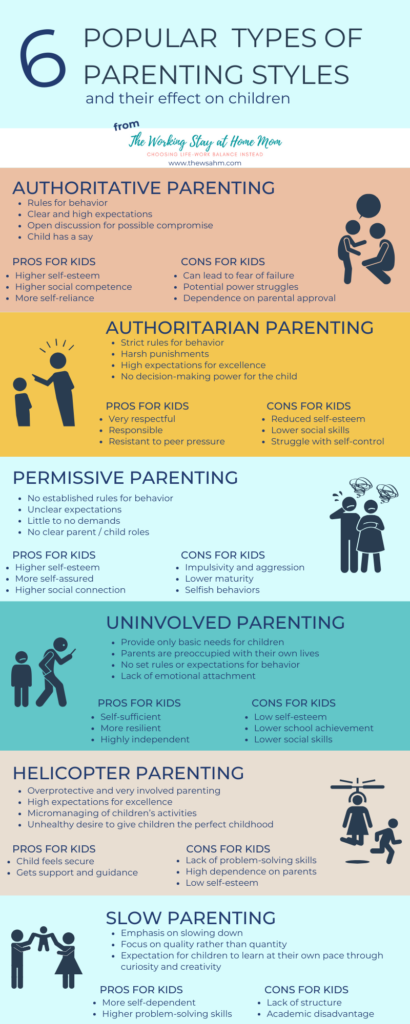
Parenting style refers to how a parent raises their children, including the methods, beliefs, and actions they use to nurture, discipline and teach their kids.
Each parent has their own, unique way of interacting with and directing their children, and this relationship typically shapes a child’s morals, values, and behavior.
By recognizing and understanding their parenting style, parents can actively work towards building a strong and healthy relationship with their children, while also being more conscious of the impact their style has on their children’s growth and overall development.
It’s important to understand that, although most parents will have a dominant parenting style, their approach to parenting will also be influenced by their own upbringing, cultural background and socioeconomic background.
Here is a simple definition of each parenting style. To make these definitions a little more easy (and fun) to understand, I have presented them through a popular movie parent.
Authoritarian Parenting Style

Authoritarian parents are characterized by their strict rules and high demands. They expect obedience and often use punishment as a means of discipline. This style does not emphasize open communication. Instead, it tends to result in children who may be obedient, but lack self-esteem and social competence.
Example of an Authoritarian Movie Parent
To get an idea of this type of parenting, think The Little Mermaid. King Triton, Ariel’s father, has a set of strict rules that he expects his subjects (including his children) to obey. When his rules are broken, he is willing to use severe punishment.
Although he means well and cares for Ariel very much, he is not open to understand or accept Ariel’s viewpoint. She is to follow his command because he knows what’s best for her. After all, he is the almighty king and ruler of the ocean.
The problem with King Triton’s parenting style is that, eventually Ariel grows up. Rejecting his authority, she turns to the dark side (the evil Ursula) to create herself an identity other than the one enforced by her father.
However, once she’s out of King Triton’s dominion (the ocean) and lands into the real world, she has no voice, or any kind of acceptable social skills for all that matters. Out in the real world, Ariel is incapable of functioning as an independent individual. She is left to rely on the prince to take her in, care for her and, essentially, show her how to behave appropriately. Ouch!
Authoritative Parenting Style

Authoritative parents are known for setting clear rules and expectations for their children while still being responsive and nurturing. They are warm and supportive, yet also have high expectations for their children’s behavior. This style encourages independence and self-discipline in children, as they are given the freedom to express themselves while also understanding the boundaries set by their parents.
Although the majority of experts in the field of psychology agree that authoritative parenting produces the healthiest outcomes for children, it is important to note that this parenting style isn’t perfect.
Example of an Authoritative Parent in Movies
An example of this type of parenting can be found in the character of George Banks in the classic movie Father of the Bride.
Although a supportive and loving father, the extremely high expectations he places onto his daughter Annie, make it impossible for him to accept her choice of husband. It’s the classic case of “no one is good enough for my exceptionally perfect girl”.
In turn, whenever Annie is faced with conflict, she seeks for her father’s validation and approval, because who could ever achieve “perfection”.
Permissive Parenting Style

Permissive parents are lenient and indulgent, often avoiding confrontation and allowing their children to make their own decisions. They are nurturing and loving, but are reluctant to set firm boundaries. This style can lead to children lacking self-control and struggling with authority figures.
Example of a Permissive Parent in Movies
The character of Kate Baker (the Mom) in the film Cheaper by the Dozen embodies this type of parenting perfectly.
Kate is the permissive parent par excellence. She is nurturing and loving toward all her 12 kids. However, she fails to create any kind of boundaries or rules in the household (probably because she is severely outnumbered).
Beside her constant exhaustion and the frat-house-party-looking home, there is one main problem with Kate’s parenting style. Although seemingly close, the members of the Baker family are incapable of looking out for each other. They are far too concerned with their own personal needs and desires.
As a result, the family is unable to work as a unit. When Kate attempts to create a temporary structure (for Oprah’s visit), the whole thing falls apart.
Uninvolved Parenting Style

Uninvolved parents are disengaged and neglectful, providing little emotional support, guidance, or attention to their children. They may have minimal involvement in their children’s lives and may be unaware of things such as their children’s activities, friends, likes or dislikes. This parenting style can have detrimental effects on children’s emotional development and overall well-being.
Example of an Uninvolved Parent in Movies
Kate and Peter McCallister, from the beloved Home Alone franchise, embody this type of parenting perfectly.
Although providing their children with a seemingly idyllic suburban home, Kate and Peter are less than interested in offering parental guidance or understanding their children’s emotional needs. They are so preoccupied with the “adult stuff” around them, that they “forget” Kevin not once, not twice, but however many sequels were created in the franchise.
The result of Kate and Peter’s parenting style is anything but good. Kevin might be resilient and self-sufficient (out of necessity). However, he has difficulty interacting with his peers and he is deeply troubled, even at times depressed.
In moments of sadness or loneliness, Kevin turns to imaginary or peculiar characters for help, such as Santa Claus, the mysterious neighbor or the bird-lady in the park (in part 2). This might land him in a whole new set of problems once he hits puberty!
A Few More Parenting Styles to Consider
Helicopter Parenting Style
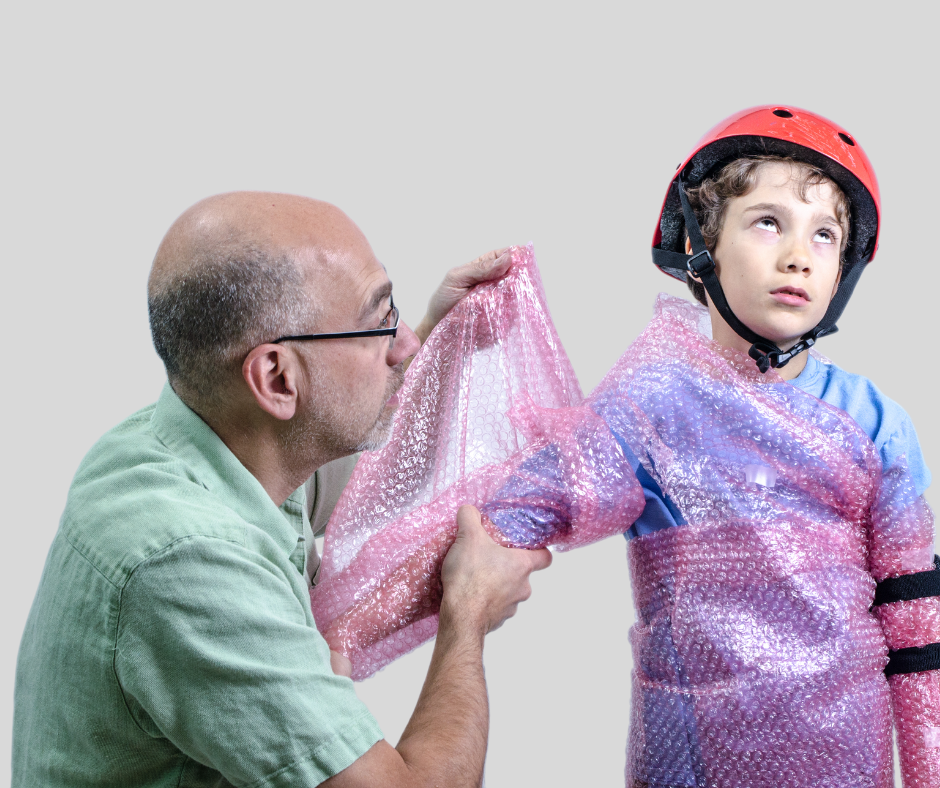
Helicopter parenting refers to a style of parenting that involves closely and often excessively monitoring and intervening in a child’s life, particularly with regard to their education, extracurricular activities and decision-making.
This type of parenting is characterized by high levels of control and overinvolvement. Helicopter parents take on a dominant role in their child’s daily activities and decision-making processes. They tend to be overly protective and can hinder their child’s ability to develop independence and problem-solving skills.
Example of an Helicopter Parent in Movies
The character of Daniela Paguro in the animated film Luca is a blueprint of helicopter parenting.
Daniela is constantly warning her little boy of the dangers of going above the surface. Controlled by her own fear of the “human monsters”, she monitors all her boy’s daily activities. When Luca disobeys her, she goes as far as arranging for him to be sent all the way to the bottom of the sea. This would ensure his safety from literally anything, including sunlight.
Luca’s intellectual curiosity brings him to escape his family home, despite his timid and anxious demeanor. However, once he is away from the family home, Luca manages his newfound freedom with a whole lot of difficulty.
Slow Parenting Style

Slow parenting is a parenting style that emphasizes quality over quantity. It involves allowing children the time and space to explore and learn at their own pace, rather than over-scheduling their days with activities and obligations. This approach encourages parents to prioritize meaningful connections with their children, fostering a supportive and nurturing environment for their emotional and cognitive development. Slow parenting supports a more relaxed and mindful approach to raising children. The focus is on the present moment and cultivating a strong parent-child bond.
Example of a Slow Parent in Movies
The character of Robert Quimby (the Dad) in Ramona and Beezus is a great model of slow parenting.
An artist himself, he encourages Ramona to dive straight into her imagination and discover the world from her very distinct perspective.
This parenting style allows Robert to have an excellent relationship with his daughter Ramona. The downside is that Ramona doesn’t always know how to regulate the imaginary from reality. This causes her issues at school with her peers and her teachers.
The Pros and Cons of Parenting Styles
As you can see from the descriptions above, there is no parenting style that comes without its setbacks (although, as mentioned above, experts agree that authoritative parenting produces the best outcomes).
However, by understanding each parenting style and the impact it may have on your children, you can determine whether it would be a good idea to perhaps borrow portions of other parenting styles. This could help you create more balance and the best possible outcome for your kids.
Discovering Your Parenting Style
Now that you have an idea about some of the popular parenting styles out there, you are probably wondering where you fit in. So, are you ready to find out what’s your movie parent double?
Finding your unique parenting style requires self-reflection and an understanding of your values and beliefs. Consider the following questions to help identify your approach to parenting:
- How do I communicate with my kids?
- How do I express affection toward my kids?
- How do I handle discipline and set boundaries for my children?
- How do I expect my kids to behave?
- What achievements do I expect from my kids?
- What role do independence and autonomy play in my parenting approach?
By reflecting on these questions, you can gain insight into your parenting style and its potential impact on your children’s development.
For example, if you tend to practice positive communication with your child, but also tend to set distinctive boundaries and have high expectations of your children, you may fall under the Authoritative style of parenting.
During your reflection, try to consider your own upbringing and cultural / socioeconomic background. What kind of parenting style did your parents fall under? Did that parenting style work for you? If not, why didn’t it work for you and how can you avoid mimicking your parents’ behavioral tendencies with your own children?
Taking your upbringing into consideration is an important part of this reflection. Oftentimes, parents will realize that they tend to adopt a style of parenting simply because it was part of their upbringing. More on this here.
Embracing Your Parenting Style
Once you have identified your parenting style, it’s important to recognize that there is no one-size-fits-all approach to parenting. Each style has its strengths and weaknesses, and what works for one family may not work for another. Embracing your parenting style means acknowledging your strengths and areas for growth while being open to adapting and learning from your experiences.
That being said, remember that too little or too much of something is usually a bad idea.
Striking a Balance to Your Parenting Approach Is Key
Regardless of your parenting style, finding a balance between warmth and structure is key to fostering healthy child development. Children thrive in environments where they feel loved and supported while also being guided and provided with clear expectations. Striking this balance can help create a nurturing and secure family dynamic.
As children grow and develop, it’s important to remain flexible in your approach to parenting. Adapting to your children’s changing needs and personalities can help strengthen your bond and create a harmonious family environment. Embracing growth as a parent means being open to new strategies and adjusting your style to best support your children’s well-being.
What Happens if Parents Have Different Parenting Styles?
In all the articles I’ve read on the subject, I found that having a different parenting style from your spouse is not a problem. As a matter of fact, some would even argue that it allows children an opportunity to adapt to different approaches.
Every couple, despite their parenting style, will eventually disagree on how to handle an issue with the children. However, it’s how you handle the conflict that matters.
As a general rule, even in disagreement, presenting a united front to your children is always better (you can communicate your differences in private). As in every other argument you may have with your spouse, it’s important to remain respectful and supportive in order to understand the other’s opinion. Reaching a compromise is usually key.

Discovering and embracing your parenting style is a journey that involves self-awareness, flexibility, and a deep understanding of your children’s needs. By recognizing the unique qualities of your style and its potential impact, you can create a loving and supportive environment where your children can thrive and develop into confident and resilient individuals.
Need more parenting tips? Check out the Everyday Mom section of this site! Oh, and if you haven’t completed the Parenting Style Quiz I put together, go ahead! It’s a great place to start!
Let me know how the quiz went and if the article helped in the comments below.
Talk soon,
The Working Stay at Home Mom
Leave a Reply
heads up!
This site may contain affiliate links. As an Amazon Associate I earn from qualifying purchases. Please read the WSAHM disclaimer page for more information.
The advice on this site is general in nature and will need to be adjusted to your personal situation. If you have any concerns, please consult a trained professional such as your doctor or healthcare provider. More on this here

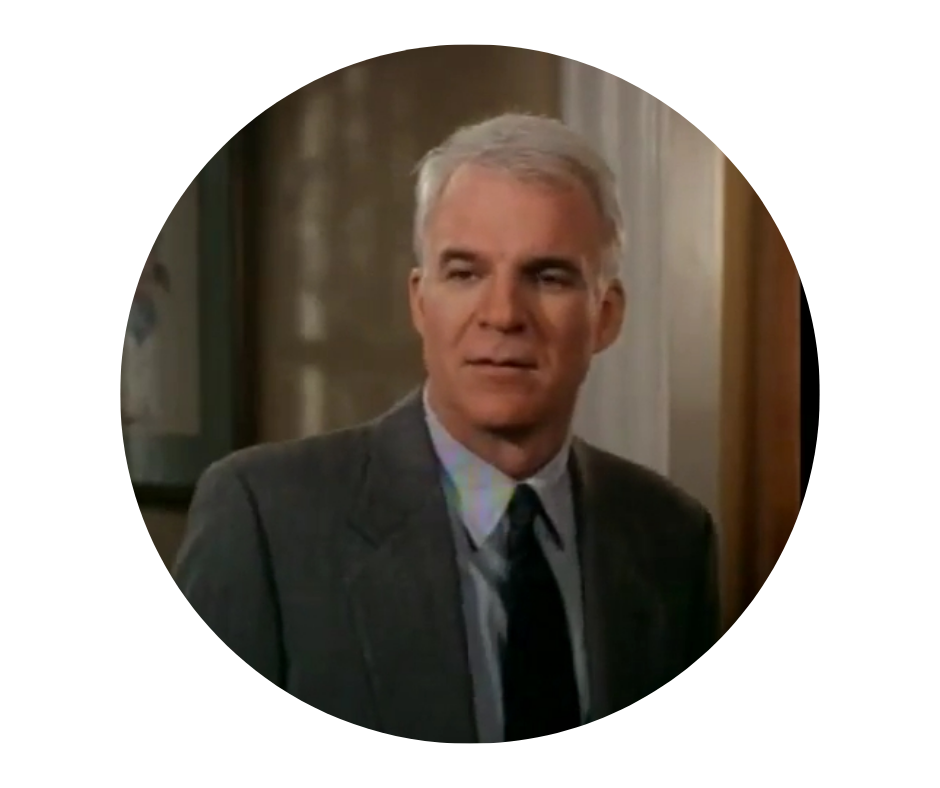


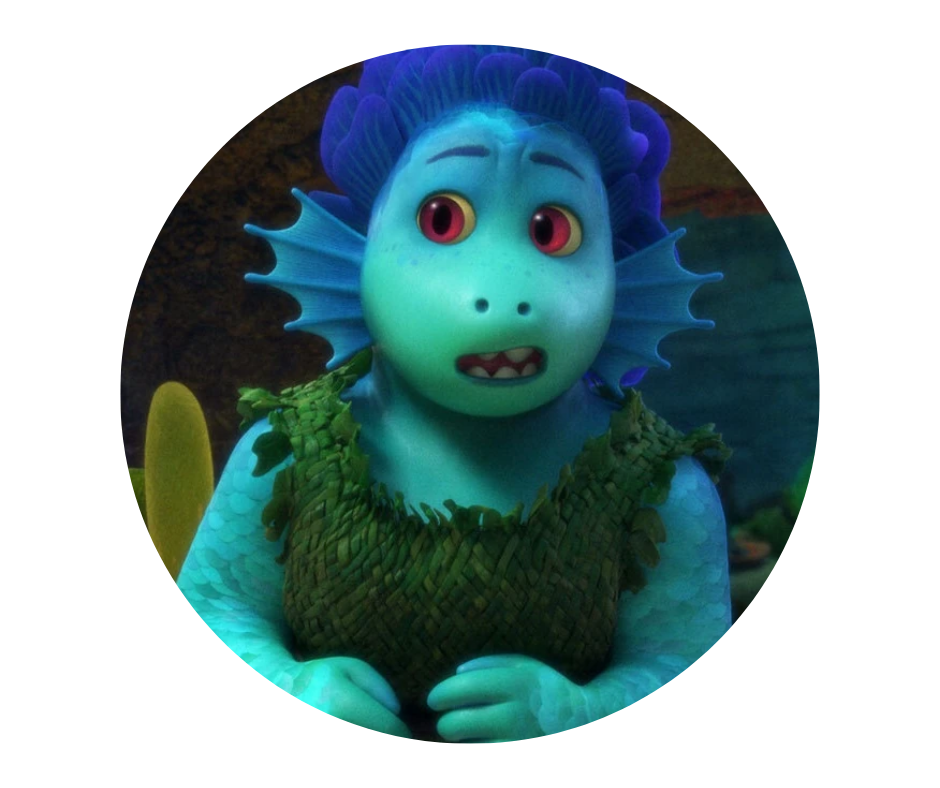

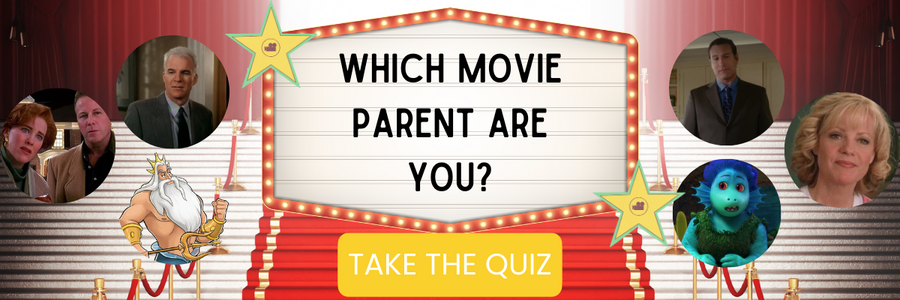
Dear The Working Stay at Home Mom:
Thank you for such insightful post about the various styles of parenting. While, I have gained information reading your article I also found myself conversing over a few points made.
First point, my favorite Disney movie, The Little Mermaid, classic tomboy. Ariel’s tomboy nature is a masculine behavior with a feminine structure. Although Ariel’s father was a dominate king when he interacted with Ariel he softened his masculinity that nurtured Ariel’s femininity. As stated, “The problem with King Triton’s parenting style is that, eventually Ariel grows up. Rejecting his authority, she turns to the dark side (the evil Ursula) to create herself an identity other than the one enforced by her father.” I don’t agree that Ariel’s refute as an adult was a direct result of rejecting her father’s authority rather her demanding her father to acknowledge Ariel as an adult in areas Ariel’s father dominate masculinity would not allow him to comprise to. I highlighted a few assumptions of tomboys that are talking points for my blog. Feel free to visit https://www.mommynmetours.org/2023/07/the-best-of-us-girls.html to caption the behavior of a tomboy.
Second, medicine is always interesting to me because of the different elements human nature contributes to create a habitant environment. I’m pretty sure baby is older now perhaps this old remedy will come handy. I experienced colic with my newborn as well; however, a doctor visit was not my first thought. Immediately, my mind went holistic approach. The holistic approach to rid colic is the juice from greens. A small portion of clean collard greens juice will help baby detoxification system. Did wonders for me.
I do not advise to discredit your doctor or avoid your doctor for a holistic approach per mommy experience. Add a home remedy to your list of at-home care.
TTYL,
MommyNMeTours
Hi there,
Thank you so much for reaching out and reading my post! I’m glad my work has sparked a few conversations in your inner circle, after all, your blog is about mommies sharing their motherhood moments!
About The Little Mermaid, which has been a favorite of my middle child (B) for years, please know that I was not condemning the film. Actually, I picked it because it is brilliant in portraying an intricate father-daughter relationship. King Triton does indeed soften when he interacts with his youngest daughter Ariel (as any good father should), however, he does not let her affirm herself in her decisions to explore the human world. Ariel’s voice is unheard in her interactions with her father unless she agrees with him completely. This is typical of an Authoritarian Parent, and this is what I aimed to highlight in using this example.
Thank you also for the tip for colic babies. I don’t know much about collard greens juice (I will look into it although my daughters are in elementary school now), but I’m sure your tip can help mommies out there research more about this option!
Thanks again for reading and please keep in touch!
Talk soon,
The Working Stay at Home Mom